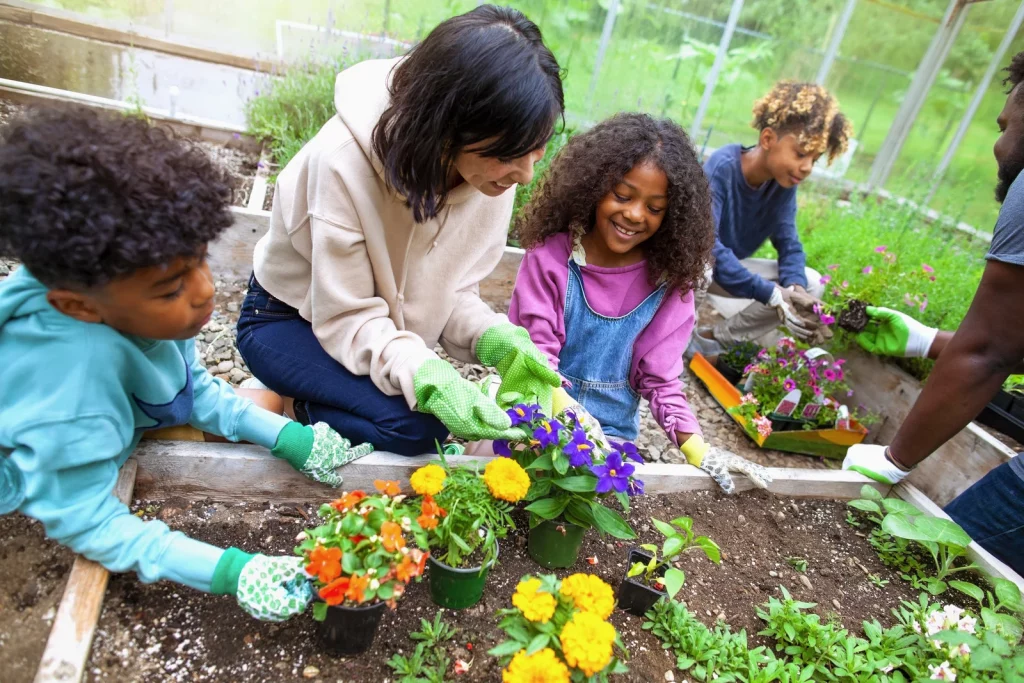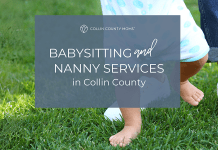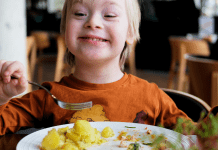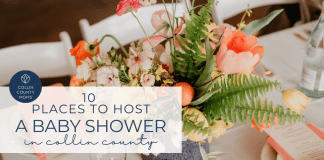Spring is almost here, thankfully, and if you’re thinking of planting a garden, now is the time to start. Planting a garden can be a fun activity to do as a family; it gets kids outside and is a great way to teach them about nature.
How to Get Kids Involved in the Garden
Let the kids help you plan what to grow in your garden.
Let your little ones help you decide what to grow and where the garden will be. You may pick a patch in the yard, a garden box outside, or an indoor herb garden kept in pots. It can be a mix of their favorite fruits and veggies (they may be more willing to eat veggies they’ve grown themselves!), flowers they like, and/or herbs they find interesting. Here’s a great article on the best veggies to grow for beginners.
Allow your kids to pick the seeds and plants for the garden.
Decide if you want to grow from seeds, plants, or a combination of the two. Take the kids to your local nursery or a store with a garden section and let them pick out the seeds or plants you plan to grow. Note: It’s important to understand your gardening zone, and what plants are best to grow in your area.

Buy kids their own gardening tools.
Adult gardening tools can be heavy and cumbersome, not to mention a little dangerous for kids. Buying kids their own tools will allow them to get more involved, and you’ll feel more at ease with them handling the equipment. You can find kid-sized gardening tools and gloves at most home improvement stores as well as online, of course.
Give them a job.
Kids love feeling included, and it gives them a sense of pride when they have a job to do. It also teaches them responsibility!
Some good gardening jobs for kids:
- Watering the plants
- Pulling weeds
- Collecting items for compost after mealtime (like eggshells and banana peels)
- Filling the flowerpots with soil
Make gardening fun!
Gardening can be a good way to get kids to learn about math and science. Talk to your kids about what they’re doing and the reason you’re doing it. Read magazines and books about gardening to get them excited and give them a greater understanding of what’s happening.
Let them get creative and experiment with things, like singing to their plants or adding different items to your compost to see if it makes a difference. Give kids the space to dig and get messy. They will have such an appreciation for nature and feel so accomplished when they see that first bud and pluck their first harvest.













